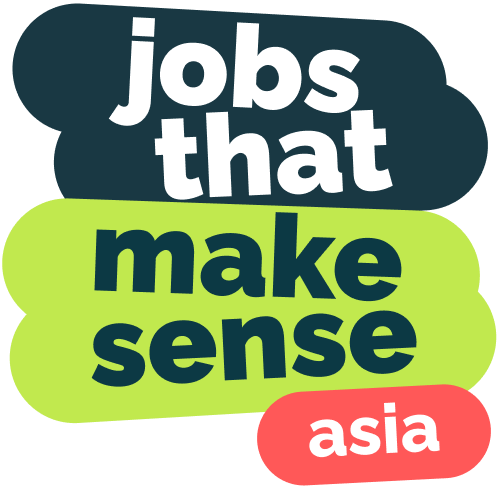How to finance your vocational training
You have decided to embark on a professional retraining, but you do not know how to finance your training? This question comes up regularly, the question of financing is even one of the main obstacles to the professional transition to jobs with a positive impact.
Sophie Carretero, professional development consultant at APEC (Association Pour l’Emploi des Cadres), presents the various existing systems, beyond the CPF.
The Personal Training Account
The best known of the mechanisms for financing his professional training. The Personal Training Account allows you to acquire training rights in the form of euros throughout your professional life, available to all workers. These training rights can be used until retirement.
Who is the CPF for ?
The Personal Training Account is aimed at all assets: public sector employees, private sector, entrepreneurs
How much money can I have available to fund my training with the CPF?
You benefit from 500€ of "credit" per year for full-time work, cumulative up to 5000€ on the Personal Training Account.
How to benefit from the CPF?
- Check that the training you wish to carry out is eligible for the CPF (diploma or certification training registered in the RNCP or in the specific directory). On jobs_that_makesense, we indicate the training courses that are eligible
- The subject of vocational training does not need to be directly related to his current job
- Training must take place outside working hours (unless agreed with the employer). The process can be confidential, your employer is not necessarily informed
- If you are unemployed, you can completely follow your training. Ask your Pôle Emploi adviser to keep them informed of your approach.
Special cases: The CPF for civil servants, job seekers or people with low qualifications
- For public employees, these training rights are counted in hours and not in euros.
- Employees who have not reached level 3 training (CAP BEP) have a CPF credit of €800 with a ceiling of €8,000
- During a period of unemployment, the active person does not generate new rights but can use his CPF credit.
What if I don't have enough money on my CPF to fund my training?
If you lack credits to finance your training, you have the possibility of requesting contributions from your CPF
- You are an employee and your employer agrees with your training: the latter can pay a sum of money into the personal training account of his/her employee
- You have had an accident at work or an occupational disease: you can also request a top-up (👉 find out more)
- You are registered with Pôle Emploi: ask your Pôle Emploi adviser to request a matching contribution
To go further about CPF
The Professional Transition Project
If you want to change jobs, you can call on the Professional Transition Project.
Who is the Career Transition Project for?
To be eligible for the Professional Transition Project, you must meet the following criteria:
- Be an employee with more than two years of experience
- On a permanent contract for more than a year in the company, or on a fixed-term/temporary contract (under conditions)
How can I get help with the Career Transition Project?
The PTP is a device that allows the payment of training costs up to €18,000 (maximum €27.45 per hour) and salary during the training (90 to 100% of the salary is covered).
Please note: for the duration of your training, your contract is suspended. It is not necessary to resign.
How to benefit from the Professional Transition Project?
- Build a file that will demonstrate knowledge of the profession, its motivation, its assets to go to this profession, the relevance of the chosen training, opportunities.
- The training must be CPF eligible in order to be financed as part of the professional transition project
- Attention: Only about 50% of applications are accepted.
- Find out in advance from the professional transition association in your region
Your project must be prepared upstream, for example through a skills assessment, or professional development advice (APEC or other).
The concept of an outlet is very important: your file will be assessed according to its consistency and credibility, and your ability to implement your project. There may be priority criteria depending on the sector of origin, level of diploma. You will find all these criteria on the pro transition sites.
To find out more about the Professional Transition Project
Work-study training, the right plan for people under 30
For several years, alternation has exploded. The number of work-study students has doubled in 2 years, to reach 700,000 people in 2021. And for good reason: this type of scheme, which combines training and professional experience, offers many advantages for both students and companies.
Who is work-study training for?
The work-study program is open to anyone under the age of 30 who is following an eligible course.
What support can I get during my work-study program?
The company hosting you covers the cost of the training and pays you a salary for the duration of the apprenticeship (around the minimum wage).
Note that this system also allows you to acquire experience that will facilitate your future professional integration.
How do I find work-study sustainability training?
On jobs_that_makesense, we reference positive impact training and CSR training that can be done on a work-study basis, such as:
- Bachelor Responsable Communication et Engagement Citoyen by Sup de Com
- Bachelor Chargé-e de mission RSE by Ecopia
- Green Management School
- Ecole 3A
- IET
How do I find a company that hires work-study trainees?
More and more companies are recruiting work-study profiles.
👉 On jobs_that_makesense, find out all the work-study job offers with postive impact
Specific aid in the event of job loss
What assistance can I benefit from under a Job Protection Plan or Voluntary Departure Plan?
In this case, depending on its size, your company has a training budget during a so-called redeployment period.
These schemes are often very advantageous for employees whose jobs are at risk.
👉 Ask your employer directly
What support can I get if I am a job seeker?
In the event of dismissal for economic reasons, there are facilities to finance his training.
👉 Ask your Pôle Emploi advisor directly to find out more.
What is the Professionalization Contract?
Open to all job seekers regardless of their age, the professionalization contract is a system similar to work-study. It allows you to benefit from the cost of training being covered by your future employer as well as remuneration (around the minimum wage).
Note, Pôle Emploi can compensate for the loss of income between your Pôle Emploi allowance and your work-study salary.
Resignation for professional transition
Who is Resignation for Career Transition for?
This system is open to employees with more than 5 years of continuous activity, especially if your professional transition project has been refused.
What rights does resigning for career transition give me?
Resignation for professional transition allows you to resign and benefit from Return to Employment Assistance (unemployment).
How to benefit from the resignation for professional transition?
To benefit from it, you have to put together a file as in the framework of the professional transition project. This file is submitted to a commission and if the commission validates, it gives you access to Pôle Emploi.
The risks of resignation for professional transition
- This is a big risk, because then you quit your job. It is therefore essential to be sure of your professional project
- You will most likely not be able to benefit from the CPF contribution schemes presented earlier, but you will be able to combine with a professionalization or work-study contract depending on your age
Specific aid for shortage occupations
A profession is said to be in tension when the job offers are greater than the demands.
For these specific professions, Pôle Emploi or the region can buy training places or help finance certain training courses. In these cases, training courses that correspond to recruitment difficulties are often preferred.
Each region and Pôle emploi compile a specific list of shortage occupations.
Note: there is no specific system for jobs in the ecological and societal transition, unless the region decides to list them among the jobs in tension.
👉 For the Île de France, find the list of programs paid by the Region
Taxation and financing of professional training
Under certain conditions, you have the option of deducting your training costs as real costs on your tax return. This is particularly advantageous for formations with a fairly high cost.
In any case, we recommend that you confirm with your tax office beforehand!
Professional Development Council (CEP)
What is Professional Development Consulting?
The CEP is a free system open to anyone wishing to take stock of their career, regardless of their age and professional situation. This system makes it possible to establish a professional development project and to obtain advice.
Depending on the organizations and depending on your needs, you can benefit from one or more individualized sessions.
The CEP is complementary to the skills assessment, it is a first step to guide in your professional retraining project.
How to benefit from the CEP?
No particular conditions to fulfill to benefit from it. Your employer does not have to be informed, and the advice must be given outside of your working hours.
To benefit from CEP, simply make an appointment with the competent operator.
👉 For executives: book an appointement with APEC
Take action
👉 Training in the professions of ecological and social transition
For further
👉16 steps for your professional transition
👉 There is no age to start: make a professional retraining at 35, 40, 50
👉How to ensure professional retraining without loss of salary?
👉 Build a professional retraining project that makes sense

